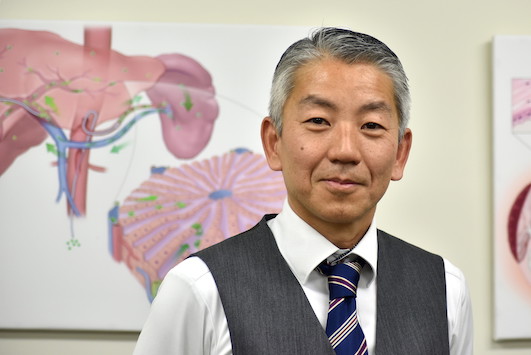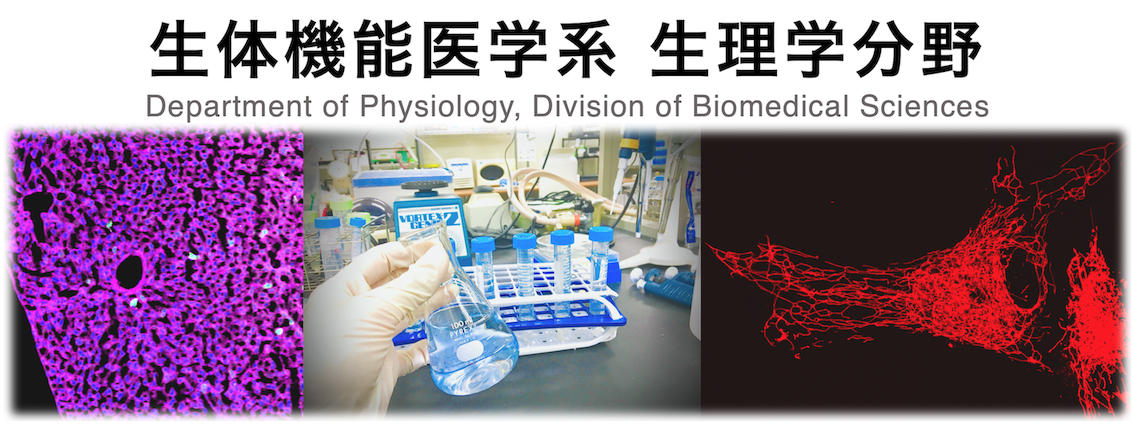The new Department of Physiology has just launched in April 2019.
We are here to reboot the Nihon University School of Medicine with a focus on the development of novel medical therapies.
Professor Miki had worked abroad for over 20 years studying xenotransplantation, hepatocyte transplantation, extracorporeal liver support systems (artificial liver), and amniotic epithelial stem cells. His most recognized achievement has been the discovery of human amniotic epithelial cell (hAEC), a type of placental stem cell. This unique stem cell is neither an embryonic stem cell (ESC) or a mesenchymal stem cell (MSC). Instead, hAEC is a neonatal stem cell type which possesses ESC-like pluripotency and MSC-like immunomodulatory functions. hAEC can be isolated from delivered term placentae, and thus are available in abundance via non-invasive means and do not carry the same ethical concerns as embryonic and fetal derived stem cells. As they are derived from the epiblast layer, they can differentiate to cells of all three germ layers (endoderm, mesoderm, ectoderm), and are not highly immunogenic or tumorigenic. Importantly, they can differentiate into hepatocyte-like cells expressing multiple metabolic enzymes. These advantageous properties have made hAEC an attractive cell source for potential use as cell therapy for the treatment of congenital metabolic disorders. Dr. Miki has conducted multiple pre-clinical studies using different model animals of congenital metabolic disorders, including Maple syrup urine disease, Hurler disease (mucopolysaccharide type I), and ornithine transcarbamylase deficiency. Although each disease mechanism is different, hAEC transplantation improved disease phenotypes in all of these models.
Nihon University School of Medicine is one of the specialized institutes for the treatment of congenital metabolic disorder patients in Japan and is where Dr. Miki received his medical training. He has now returned to his alma mater and envisions the clinical translation of hAEC transplantation through collaborations with colleagues at the Nihon University.
In addition to the translational project, we continue working on exploring the cutting edge of basic science. Recent advances in regenerative medicine and tissue engineering have brought a clearer concept of the behavior of newly transplanted cells. These cells must integrate into human organs, and establish appropriate life-sustaining physiological conditions. By focusing on cell-cell communication, we will investigate these new physiological conditions and accumulate novel knowledge for the development of future therapies. One area in which we are focusing on is intracellular mitochondria transfer via tunneling nanotubes and exosomes as cell-cell communication tools.
The new Department of Physiology also aims to revolutionize the education system of basic medical science at the Nihon University School of Medicine. Based on our knowledge of neuroscience and physiology, we will apply new tools for learning and memorization. This new approach will gradually be integrated into the current system with the goal of improving the study efficiency for our students.
Stay tuned!
